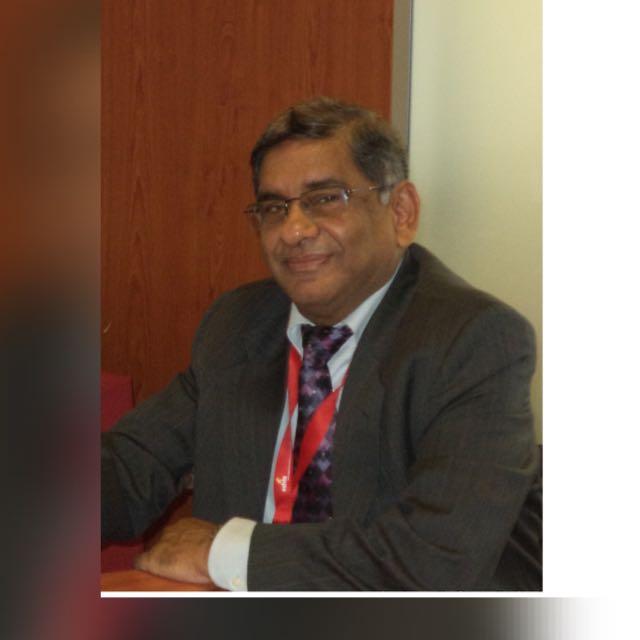
FINAL | BUSINESS CASE - BCS 09
Submission BCS 09
NMO Season 3
Proposal and Plan for Waste to Wealth Scheme
Submission Date & Time : 2021-04-03 10:53:51
Submitted By : Himanshu Ahuja - From Team Edison
Solid Waste Management: A Severe Challenge in Bhopal
An increase in solid waste is observed because of increase in urbanization, population density, and income. The growth of industry, commercial units such as hotels, theatres, restaurants, malls are rising in leaps and bounds. Such units are positively contributing to the solid waste generation. Solid waste collection, segregation and disposal capacity of Municipal Corporations is low and inadequate with the rising solid waste. Therefore, municipal corporations are aiming to adopt scientific methods for collection, segregation, and disposal of solid waste. Municipal Corporation is required to collaborate with the private sector for investment and effective management of solid waste.
Improper and unorganized disposal of Municipal Solid Waste (MSW) in open areas and landfills have a negative impact on the living conditions of human beings as well as the overall environment. It results in spread of communicable and non-communicable diseases among human beings and animals, thus affecting the welfare, livelihood and economic productivity. In addition, it causes contaminations of soil, surface water, ground water and generation of toxic and green-house gases. Hence, a systematic, scientific, and tech-enabled mechanism is required for solid waste management through creating wealth from waste.
Problem before Government of Madhya Pradesh
In Smaller Urban Local Bodies (ULB's) where waste generation is 5 to 10 Metric Ton per Day (TPD), current waste management practices has become inefficient and financially nonviable, due to excessive cost as well as non-availability of land in smaller ULB's. Government wants to make waste management processes to become efficient & financially viable and thus plan to establish region wise integrated waste management facilities covering nearby ULB's. Project involves primary and secondary collection of Municipal Solid Waste (MSW) generated within urban local bodies.
About: Green Wealth Pvt. Ltd. - It is a private limited company situated in Bhopal. It is a waste management company carrying out its business operations since 1998. Up until 2000, it was dealing only in Industrial Waste Management. The company wishes to expand its operations into Municipal Solid Waste Management within Bhopal city in collaboration with the M.P. Government.
Mission: Sustainable Waste Management to ensure Economic Growth and Well-being of all stakeholders by fostering strong institution and strategic collaborations
Vision: To become an industry leader in solid waste management and a strong contributor to sustainable growth of Bhopal City
Processing of Different Waste Categories: Waste to Wealth Strategies
Organic Waste: Organic waste is any material that is biodegradable and comes from either a plant or an animal. Examples of organic waste include green waste, food waste, food-soiled paper, non-hazardous wood waste, green waste, and landscape and pruning waste. There are two strategies of converting organic waste into wealth that the company aims to incorporate:
- Conversion into Manure: The organic waste, primarily the food waste, is converted into safe organic fertilizer and agro-protein with the use of technology. In order to reduce the amount of solid waste to be dumped into the landfills, the composting process is carried out that coverts organic waste into manure. The manure is sold to the farmers at subsidized rates (in collaboration with government) for agricultural purposes, thereby creating all the benefits of Triple Bottom Line Framework: Economic (Profit), Social (People), and Environmental (Planet). By preventing organic waste from getting into the landfill, composting projects reduce landfill gas methane emissions, and this reduction can be claimed as emissions reductions and sold to the carbon fund. Composting results in an economic and rapid solution that can be easily implemented and can result in carbon credits.
- Biomethanation Power Project: The purpose of the 'Biomethanation Plant' is to utilize organic waste and produce biogas to be used as fuel in gas based engines. Not only will this plant help in making use of biomass wastes into energy, it will also replace the use of fossil fuels that would have been used for power generation in the absence of the plant. Waste disposal, which is a serious concern (since it requires large dumping lands and can also lead to foul odor and pollution), will also be addressed as an integral part of the project. The plant will be set up through seeking financial assistance from the government for initial few years. The Biogas power project has generated additional employment for over 50 local associates in the power generation and fertilizer unit. The project reduces carbon footprint by converting methane to energy and improves soil health by generating good quality organic manure. By generating electrical energy and refrigeration along with heat recovery, the project has significantly lowered fossil fuel dependency. Any technology that reduces the dependence on fossil fuels is a significant eco-friendly technology that can be touted as being highly essential. This is because fossil fuels such as petroleum, coal and natural gas are actually stored carbons present deep in the earth. Their sudden use as fossil fuels exhausts these carbons directly into the atmosphere greatly increasing CO2 levels in the atmosphere. Thus, it is an environmentally friendly and socially responsible project that is a highly sustainable venture. It creates all the benefits of Triple Bottom Line Framework: Economic (Profit), Social (People), and Environmental (Planet).
Note: - The company, in consultation with the Government, will decide which route to take to scale the operations of the business in the subsequent years based on the payoff calculations.
Plastic: The plastic waste category can further be bifurcated into Single-use plastic and other types of plastics.
- Single-use plastics: The single-use plastic is segregated separately and then this plastic is processed separately. The plastic is shredded and processed into bales. Plastic bales are used in road construction and cement factories. Single use plastics can also be used to make PVC pipes. Such resources can be sold in the market or can be leveraged in infrastructure projects led by the government.
- Other types of plastics: Different types of plastics retrieved from a wide range of discarded devices, and products will be leveraged to produce a resource, i.e. wealth. The plastic will be transformed and recycled to become novel electrical wall switches. These electrical switches will be sold in the market at retail prices and will bring in a steady flow of revenue stream for the company. This will reduce the amount of hard plastic ending up on dumpsites while stimulating the local economy. This is a sustainable waste management solution that will help in environmental protection while earning profits ethically and sustainably.
Mixed Waste (Paper, Wood, Cotton/Textiles, Rubber, Leather, and other Corrugated Materials): This will be used to create Refuse-Derived Fuel (RDF). This fuel is produced from combustible components. This waste, usually taken from commercial sites, is shred, dried, baled, and then finally burnt to produce electricity. Refuse-Derived Fuel (RDF) is a renewable energy source that ensures waste isn't thrown into a landfill and is instead, put to good use. This project is highly cost-intensive that calls for initial assistance from the government authorities as a part of PPP arrangement. Although it is an expensive proposition, it is a scalable alternative that also requires strategic collaborations with coal fired power plants, lime plants, and/or cement plants. Materials such as glass and metals are removed during the treatment processing since they are non-combustible. The metal is removed using a magnet and the glass using mechanical screening. After that, an air knife is used to separate the light materials from the heavy ones. The light materials have higher calorific value and they create the final RDF. The heavy materials will usually continue to a landfill. The residual material can be sold in its processed form (depending on the process treatment) as a plain mixture or it may be compressed into pellet fuel, bricks, or logs and used for other purposes either stand-alone or in a recursive recycling process. The production of RDF involves the following steps: Bag splitting/Shredding, Size screening, Magnetic Separation, Density Separation, Coarse shredding, and Refining separation by infrared separation. RDF can be used in a variety of ways to produce electricity or as a replacement of fossil fuels. It can be used alongside traditional sources of fuel in coal power plants. This model has been immensely successful in a lot of countries, including Israel, Iowa, UAE, Campania, and others. This creates a positive environmental impact by reducing the need of the landfill, thereby contributing towards 'Triple Bottom Line' framework dimensions.
Construction and Demolition Wastes (C&D Wastes): The C&D wastes include both inert as well as non-inert waste materials. However, it comprises mostly of inert and non-biodegradable materials such as sand, gravel, concrete, bricks, rocks, stones, and earth. These wastes are heavy, bulky, and have high density and usually take up loads of land and space. These wastes can be used as landfill, base or sub-base in road construction, embankment fill, and railway ballast and most importantly in aggregate replacement method for the formation of recycled concrete. Utilization of sludge in the making of light weight, artificial aggregate and cement like properties is a win-win strategy as it not only recycles the waste product, but also alleviates the problem of waste disposal. Recycling such wastes by incorporating them into building materials is a practical solution for pollution problem. Producing bricks with sludge and C&D materials is not only environment-friendly, but also has better quality than normal bricks in terms of plasticity, weight, and fuel saved. It has a growing market which can increase the revenues of the company multiple times. The Construction and Demolition waste can be handled in the following ways:
- Reuse - Reuse materials like wood, steel, plastics, etc.
- Recycle - Produce materials from waste like aggregates, ready mix concrete, etc.
- Recover - Channelize waste to energy incineration plants thereby ensuring land recovery
- Landfill - This is the last resort for dumping C&D Waste
E-waste, Glass, Metals, and other Miscellaneous Waste Categories: These are sold off in bulk to village level recyclers and artisans and hence become a source of revenue for the company.
Wealth Creation through CSR initiatives: Executing a hyper-local strategy by creating an open space for people to meet around cultural, social and environmental events. The building's main walls will be constructed using old car tyres, and aluminium cans, thereby reducing the need for cement. This also stabilizes the indoor temperature during the warm summers and cold winters, reducing energy demand. Rain water harvesting and the treatment and use of sewage are used for irrigation, and there is an active botanical cell inside the building.
Another strategy is creating a social-tech organization providing solutions to fight food waste and minimize waste generation. This will aim to create a food donation network, connecting private establishments and NGOs with people living in socio-economically precarious conditions through an innovative mobile application. The organization will also raise awareness around the issue of food waste through the publication of content such as full-use ingredient recipes, aiming to positively impact public policy.
Department-level plans for execution of Waste to Wealth Scheme
Marketing
According to market research, Bhopal is developing at a high pace and as a result the waste generated by the city is skyrocketing which has made the current waste management system inefficient. Many housing and infrastructural projects have been planned in the city which will lead to high demand of construction material, food and energy in the future.
Keeping in mind the limited land availability in Bhopal and the hazards of landfill, 2 Bin 1 Bag systems will be introduced which will lead to segregation at source which will lead to faster processing of waste. Waste will be converted into bricks, paver, compost and refused derived fuel which will be used in construction projects, farms, power plants and kilns.
The company will emphasize on high value, high-quality products and services to create a relationship-oriented business which maximizes resource value, while minimizing environmental impact for sustainable development of the society.
A two- fold promotion strategy will be employed in which the prior will focus on creating awareness about the need of efficient waste management and creating brand name while the latter will focus on teaching how to segregate and, marketing the product & changes that the company has brought.
The marketing strategy at the introduction stage will focus on reliance on existing brand name and trust the company has, keeping prices low by maintaining lean cost structure and selective distribution while promotions build enough awareness that the product enters into growth stage and will be aimed towards the households.
In growth stage the strategy will evolve to increasing product utility, maintaining high demand and decreasing lead time. Promotions will more product preference specific and will be aimed towards businesses and institutions. Adaption and innovation of product according to customer needs will extend growth stage of the product and allow the company to provide maximum utility.
The app will used to maintain transparency with the customer and other stakeholders and improve their quality of life with features like notification when garbage collector is at the door, optimized route for garbage collection van, option to buy products made by the company and to donate to NGOs which are working with us to uplift the marginalized communities. This in turn will make the consumer feel as a vital stakeholder and an integral part of the process and therefore will positively reinforce him/her to adhere to segregation guidelines for the welfare of the society and environment.
IT (Information Technology) and Operations
The entire waste to wealth management system will be grounded in strong technological capabilities and use of cutting-edge technical capabilities in integrated waste management. The entire operational flow will be as follows:
Our customers will be primarily of four types, namely households, corporate houses, institutions (hospitals, schools, restaurants, etc.) and public services (parks, parking lots, bus stand, etc.)
Each entity will be provided with four colored dustbins, as described below:
- Green dustbin: Organic waste
- Red dustbin: Toxic waste, e-waste, metal
- Blue dustbin: Dry inorganic waste
- Yellow dustbin: Wet inorganic waste
- This distribution of colored dustbins for 'waste segregation at source' will be conducted by the Municipal Corporation of Bhopal
- Waste from each entity will be discarded into the colored dustbins Every morning, a garbage picker will come to his door with four similarly colored bags
- The garbage picker will put the garbage of one dustbin into a bag of the same color. That means the red dustbin waste goes into red bag of garbage picker
- The garbage picker will do the same for all houses in a society and then proceed to a set of large garbage bins (let's call them community bins) placed outside the society
- There will be four differently colored community bins. Garbage picker empties his red bag into red community bin, blue bag into blue community bin, and so on
- The community bins are equipped with IoT sensors and when they are almost full, they relay an alert to our office, asking for emptying them
- All such alerts over a day are stored in our database
- Then, every morning at 5am, Green Wealth Pvt. Ltd. (our company) will check which all community bins are asking for being emptied. All these community bins will be located on a map and an optimized route will be planned for our garbage trucks to go and empty them
- The garbage picking trucks will come back to our facility, where the segregated waste will be again sorted and segregated (just in case some unsegregated waste has made its way into our bins)
- First the organic waste will be divided into two categories - composting and Biomethanation. We will check every day how much of composted manure is in demand by farmers around Bhopal, and will accordingly set aside appropriate amount of organic waste for composting
- Rest of the organic waste will go into Biomethanation plant, where energy will be produced for lighting up the suburbs of Bhopal
- The construction and demolition waste will be converted into paver blocks, which will be used by municipal corporation for building and mending the city roads
- Single-use plastic will be recycled into road paver blocks, while other plastics will be converted into electrical switches
- Paper, plastic and glass waste will be sold in bulk to the village level small enterprises that recycle them into paper plates, glass bangles, plastic items, etc.
- We will enter into contract with these SME partners under government's supervision. This way, we will be supporting grass root level enterprises and will be supporting livelihood of people in villages
- All other waste that cannot be recycled will go for incineration, which will help produce energy
MIS Reporting:
All reporting will happen on MIS sheets. MIS reporting tools will monitor the amount of waste generated in each block every day, the number of Community Bins seeking attention, the value of recycled goods generated, the timeliness of garbage picking trucks, the emissions happening at our facilities and the returns of marketing investments.
Corporate Social Responsibility:
We shall partner with few restaurants on pilot basis and give them an app which helps them to donate their leftover food at the end of day.
Using the app, the restaurant owner can notify how much kilos of leftover food is available and what time the pickup is needed. Our personnel will reach the restaurant and pack the leftover food, which will be donated at shelter homes and orphanages that partner with us. This will retain the best value of food, rather than redirecting it into composting or Biomethanation.
Human Resources: The action points to be initiated by the HR include the following:
- Hiring and Recruitment: External Recruitment for Division Head - Solid Waste Manager - 1 position, Solid Waste Engineers - 4 positions, Safety Trainer - 1 position, Legal Counsel - 1 position, and Training Instructor - 1 position. Rest all the positions will be internally recruited.
- Training and Development: A specialized training and development will be conducted for the solid waste manager (Division Head), and for the engineers.
- Performance Evaluation: KRAs and KPIs will be set up for each personnel across each department, against which their performance will be evaluated from time-to-time and targets of the company as a whole will be tied to these KRAs and KPIs accordingly.
Finance : The following documents have been carefully prepared by the Finance team for the optimal procurement and usage of funds for various projects:
- Income Statement
- Cash Flow Model for Capital Investment
- Operations and Management Costs
- Revenue Statements
- Statement of Assumptions
- Statement of Expansion Cost Estimations
The cost estimations and the capital budgeting techniques applied showcase a situation of positive Net Present Value (NPV) of the initiative, with the discount rate of 4%. This implies that the project is worth pursing on a longer term basis through scaling the operations of the same. The detailed assumptions and explanation to each figure under each schedule is presented in the Financial Plan, prepared by the Finance Team.
Outcomes and Conclusions:
- Achieving Triple Bottom Line: The Company intends to accomplish triple bottom line through earning profits and positive NPV from wealth creation in an ethical way. The company intends to create clean, green, and hygienic environment for people while also increasing their employment opportunities. Further, by sustainable waste management strategies, it intends to create positive impact on environment and ecology, thereby achieving 'SUSTAINABILITY' in its true sense.
- Stakeholder Theory Fulfillment: The Company intends to discharge its responsibilities towards all the stakeholders including suppliers, workers, consumers, local community, society, and government through its ethical and sustainable business practices. It tries to fulfill its CSR (Corporate Social Responsibility) through its operations by helping all the stakeholders co-create value with the company's business objectives.
- Achieving Circular Economy in true spirit: The company aims to arrive at a zero waste stage wherein it creates an economic system that eliminates waste, and ensures continual use of resources in the process of further production or wealth creation for the society at large.
- Accomplishment of Sustainable Development Goals (SDGs) by United Nations
Through the robust circular economy and municipal waste management, the company will also achieve a lot of UN Sustainable Development Goals which will further establish it as a credible, and sustainable company across the globe. Some of the SDGs that are directly associated with company's operations include: 6,8,9,11,12,16, & 17.
Comments

Dr Saroj Kumar Dutta
Very Good Submission, Nice Ideas around Single Used plastics, Biomethenation, manuer Creation, etc. Landfill savings suggested by you was also nice. It would have been brilliant if steps to implement suggestions would have included in the solution. Keep up the Good Work

Rajni Khosala
Working Team together for a single motive is your strength Himanshu, Wishing you a great future ahead.

Umeash Sahhaaii
Himanshu showed mettle as a leader, Good Work, and Diligent Teamwork. Wonderful Submission.
Participant
Himanshu Ahuja
Team Edison BCS 09 Submission
Total Team Points: 132500
Team Sarabhai BCS 09 Submission
Total Team Points: 135450










